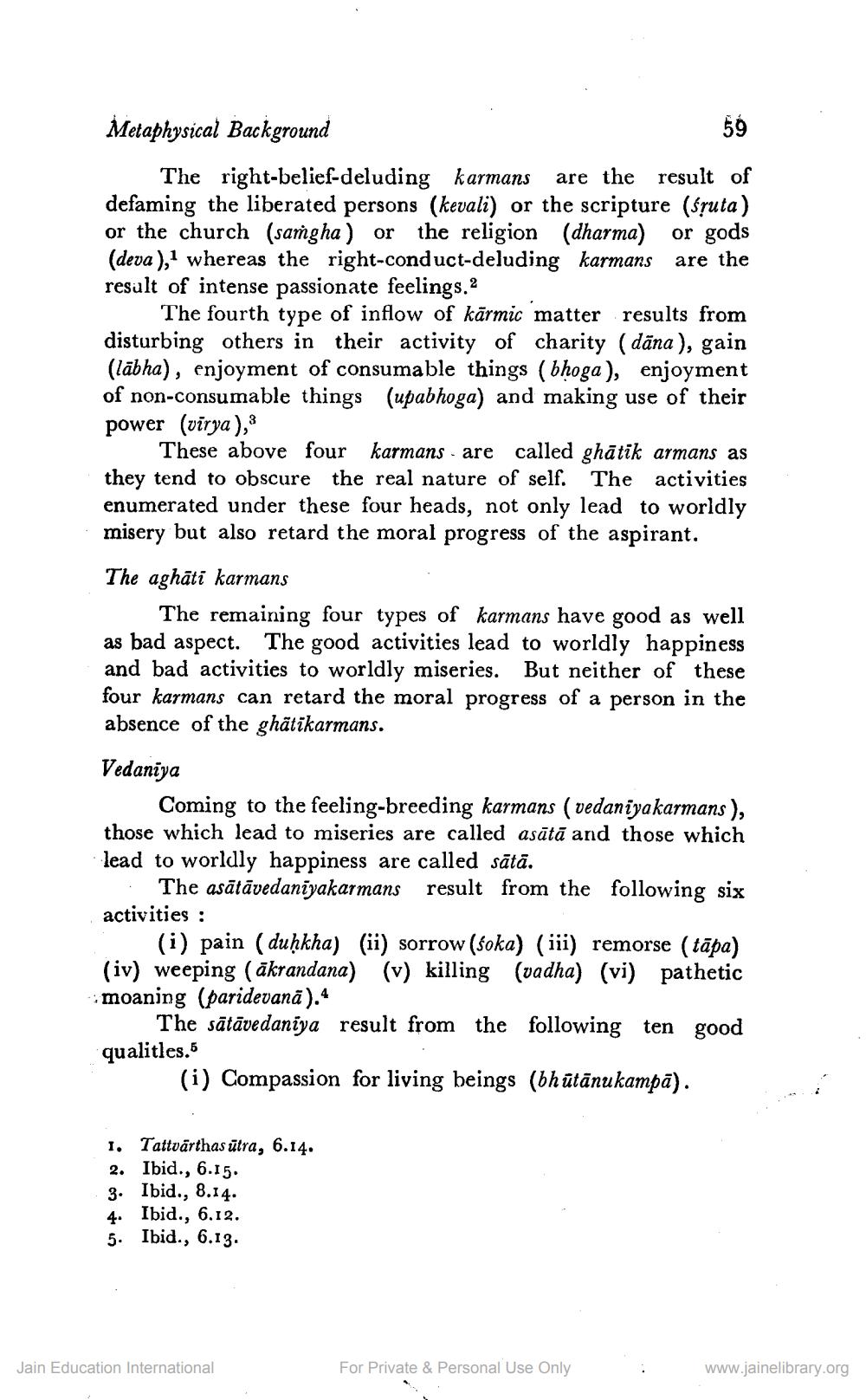________________
Metaphysical Background
59 The right-belief-deluding karmans are the result of defaming the liberated persons (kevali) or the scripture (śruta) or the church (samgha) or the religion (dharma) or gods (deva), whereas the right-conduct-deluding karmans are the result of intense passionate feelings.2
The fourth type of inflow of kārmic matter results from disturbing others in their activity of charity (dāna), gain (lābha), enjoyment of consumable things (bhoga), enjoyment of non-consumable things (upabhoga) and making use of their power (vīrya),
These above four karmans are called ghātik armans as they tend to obscure the real nature of self. The activities enumerated under these four heads, not only lead to worldly misery but also retard the moral progress of the aspirant. The aghāti karmans
The remaining four types of karmans have good as well as bad aspect. The good activities lead to worldly happiness and bad activities to worldly miseries. But neither of these four karmans can retard the moral progress of a person in the absence of the ghātikarmans.
Vedaniya
Coming to the feeling-breeding karmans (vedaniyakarmans ), those which lead to miseries are called asātā and those which lead to worldly happiness are called sātā.
The asātāvedaniyakarmans result from the following six activities :
(i) pain (duḥkha) (ii) sorrow (soka) (iii) remorse (tāpa) (iv) weeping (ākrandana) (v) killing (vadha) (vi) pathetic moaning (paridevanā).
The sātāvedaniya result from the following ten good
qualitles.5
(i) Compassion for living beings (bhūtānukampā).
1. Tattvārthas ātra, 6.14. 2. Ibid., 6.15. 3. Ibid., 8.14. 4. Ibid., 6.12. 5. Ibid., 6.13.
Jain Education International
For Private & Personal Use Only
www.jainelibrary.org




